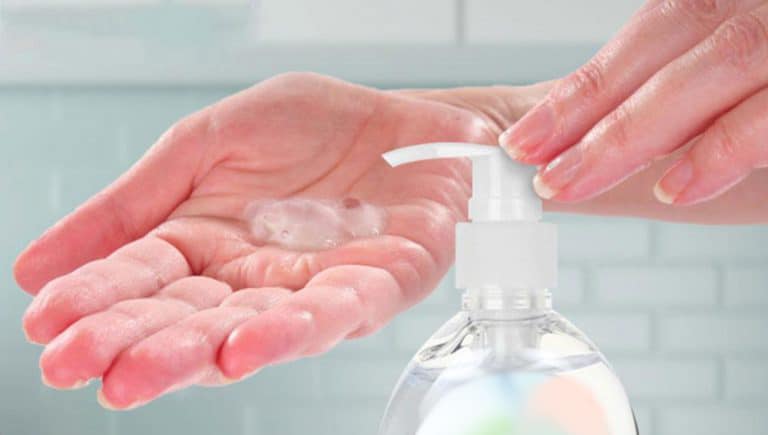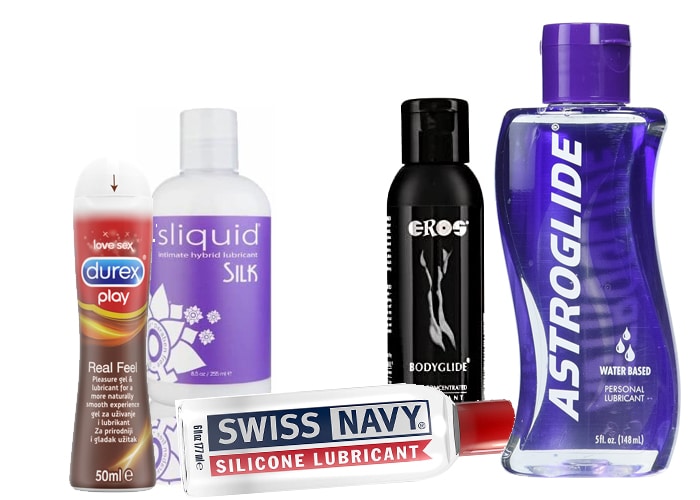Lubricants are great additions to awesome sex. Lubricants aim to reduce friction during anal or vaginal intercourse.
Lubricants moisturize the vagina, anus, and rectum to facilitate sexual intercourse. In addition to moisturizing, a lubricant can have anti-inflammatory and stimulating effects. Some species can act as contraceptives and to prevent infection.

Using a personal lubricant makes every kind of sex play slicker and often more sensitive. Unless you prefer painful friction (and there’s nothing wrong with that, as long as you don’t rub yourself too raw, and take a few preventative steps to avoid potential infections) you’ll probably find that sex with lubricant is an experience you will enjoy and replicate. Using lubricant is easy, but there are a few things to know about how to properly use a lubricant to maximize your pleasure.
Who can use a lube?
Simply put, everyone, whether their body produces enough of its own lubricant or not. If you suffer from vaginal dryness, lubricants are a must for you as they reduce itching, burning and any other discomfort.
Vaginal dryness usually affects women who do not drink enough water, smoke cigarettes, breastfeed, use oral contraceptives, take antihistamines or antidepressants, are in perimenopause or menopause, suffer from Sjögren’s syndrome, and undergo chemotherapy.
Some lubricants are specifically designed to improve sexual performance and arousal. You can try them to “heat up” the love game with your partner, even if you do not suffer from vaginal dryness.
Time Required: Lubricant is easily inserted (pun intended) into any sexual routine.
Useful tips for using a lube
Find the right lubricant for you
Yes, it’s quite simple to use lubricant, but the harder part is to use the product that works best for you, depending on the purpose you’re using it for. You may want to make sure that you use a lubricant that suits your needs if you are susceptible to yeast infections, have sensitive skin, or are worried about chemicals in products you are using on your body.
For sex toys and anal play, thicker lubricants are recommended to use, and you should not use silicone lubricants on silicone toys, as such may degrade the material. We recommend shopping at trusted sex shops only. One more thing you can do is buy a small bottle or sample pack, and test your wrists and inner thighs first if you’re not sure if the product is right for you.
Lubes can be used in combination with all kinds of sex toys.
For instance, you can easily apply an appropriate lube to your internal rabbit vibe and start playing right away.
Lubes can be very helpful when you are about to enjoy your favorite wand toy even if your body is not yet prepared. The same goes for other kinds of external vibrators, such as panty vibrators or top-notch bullet vibrators.
When selecting the lube that’s right for you, you’ll want to think about the various types out there. A number of bases come with lubes:
- Water
- Silicone
- Oil
- Hybrid, with a few of the above combined
Make sure you’re in the right mood
If it’s your first time with lubricant, take some time when you’re alone and won’t be interrupted and experiment. Fumbling in the dark in the middle of sex can be fun, but you’ll probably get more out of it, and feel more comfortable if you’d experimented with ways of applying lubricant, how much to apply, when to re-apply, etc… If you’re worried about mess the first time, put a big towel down, tear off the safety seal, and let it slide.
The initial application
If you can, start out by just using a little bit of lube. If you’re using your fingers and hands, put a small amount (maybe the size of a smallish coin) on your fingers or in the palm of your hand. Now touch your genitals with the lubricant. Pay attention to how this feels different than touching without lubricant. Is it colder? Wetter? Do you feel it more in one area than another? See how long you can touch yourself before the lubricant changes in consistency (this is more for water based lubricants which dry up during use).
It goes on everything
When you’re using lubricant you should put some on your own body and some on anything else you’re using. Lubricant goes on fingers, on sex toys, on your partner’s body parts that will be rubbing with your body parts. Only putting lubricant on one side of the sex will work, but not as well as if everyone and everything has a little bit of lubricant on it. If you’re using lubricant for intercourse, go ahead and put some lubricant inside yourself as well as outside. This is essential for anal intercourse, but pleasing and helpful for vaginal intercourse as well.
Too much of a good thing
Every lubricant and every individual will require different amounts for the best use. With some water-based lubricants, you can put too much on, making it sticky right away. The only way to know how much is too much is to experiment. Again, playing alone first can be a good way to do this, but you can also check in with a partner after the fact.
When the lubricant dries
Water-based lubricants tend to dry up quickly. Instead of reapplying more lubricant when this happens, you can usually just apply some water (or saliva, but it’s less effective) to reinvigorate the lubricant that’s still on your body. Some people have a spray bottle by the bed and add a few spritzes of water when the lubricant dries up (this can also be a fun and funny thing to do during sex). Silicone lubricants don’t dry up in the same way as water-based lubricants, in fact you need soap and water to stop feeling quite so slick once you’ve applied most silicone lubricants.
Check the expiration date
Lubricant does expire, and your lubricant should have an expiry date on it. The expiry date refers to the shelf life of the lubricant unopened. With water-based lubricants, once you open a bottle it will start to lose its effectiveness, and if you don’t remember to close the cap securely it will evaporate over time. Most lubricants have antibacterial ingredients, and if they have lost their effectiveness it’s conceivable that using an old lubricant could result in an infection. When in doubt, smell the lubricant and try a little on your hand before using it.
Lubricant in condoms
If there’s a penis and condoms involved in your sex life, you can put a drop of lubricant in the tip of the condom before rolling it on the penis. But you need to be careful not to put too much in the condom as it could result in the condom slipping off.
Lubricants for anal play
As anal walls are thinner than vaginal walls, thicker lubes are better for anal sex or using an anal vibrator, and therefore require a lube that can hold them nice and slippery to decrease the chances of cuts and tears inside the rectum. The probability of contracting a STD is enhanced by abrasions, and nobody wants that.
Overall, anal sex, just like vaginal or oral sex, is considered especially dangerous in terms of STD transmission, so condom use is necessary (unless you are in a monogamous relationship, and both you and your partner have been tested). And because of that, it’s necessary to make sure to use a latex-friendly lubricant. For instance, coconut oil and basically everything in your kitchen can’t be used with condoms.
Will my lube stain my sheets?
When it comes to stain-yness, water-based lubes have a huge advantage over silicone-based lubes, in that water-based lube stains are really easy to remove from sheets and other textiles.
In fact, most water-based lubricants won’t stain sheets, but I have heard stories about people having their favorite sheets ruined when using widely available water-based lubricant brands. So use caution (or a big towel) on your favorite sheets, and if you really want to know, test some lubricant on the corner.
Many silicone lubricants will stain sheets but some companies offer tips on how to get silicone stains out of them.
Although silicone-based lube is very effective for its primary purpose, it is much more difficult to clean than water-based lube. Many people prefer the feeling of silicone-based lube to water-based lube in the sack, but the effects to the sheets and clothes should not be ignored. Since the silicone part is much more likely to stain than just water, learning how to remove lube stains takes a little more time than throwing your sheets in the washing machine and calling it a day.
Removing silicone stains from sheets is better said than taking oil out of clothes. Even products designed specifically to eliminate silicone-based stains aren’t always successful, so regardless of how hard you scrub, a trace will almost certainly remain.
Use the same sex toy cleaners you use on your adult toys for best performance, since these chemicals are intended to eliminate signs of sex-related fluids and lubricants.
Are there any side effects of using a lubricant?
No, but it is possible for an allergic reaction to any of the ingredients in the lubricant.
Note: People who are allergic to lubricants might experience itchiness, a rash, or even anaphylactic shock when exposed to lubes. Please review the list above if you ever experience any of these symptoms after lubricant use.
You should try to take advantage of the extra time it gives the body by engaging in longer foreplay to help your body produce its’ own lubrication. If you start to feel better, then the symptoms will be gone.
You should aim for a lube with as little or no chemicals, especially if you’re prone to skin sensitivity.
Contact your doctor if you experience: difficulty breathing, swelling of the tongue, throat or face, rash, itching after using a lubricant.



Add comment